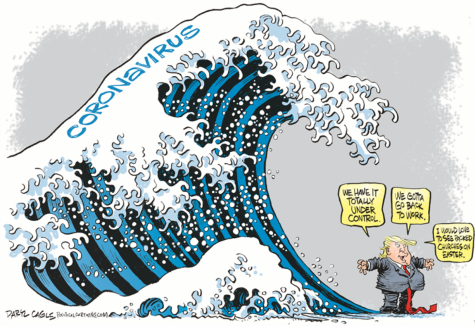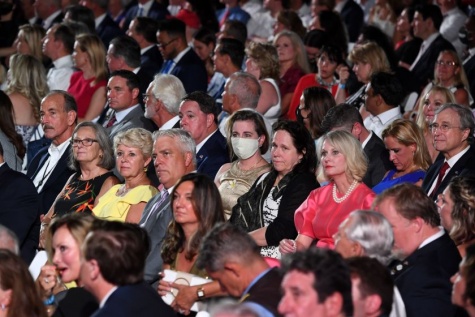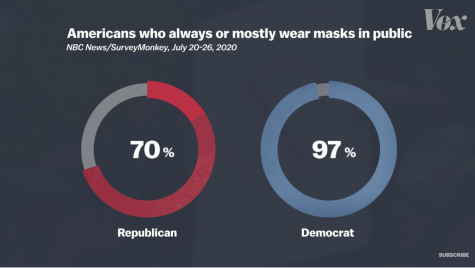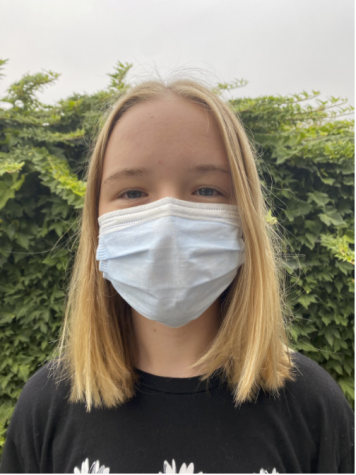
By: Kaitlyn Harsey | Editor & Jill Greene | Editor
Many believe that wearing a face mask and social distancing will reduce the spread of COVID-19, while others value their own well being over the public’s health and safety. This individualistic way of thinking could be why the pandemic is still an ongoing problem in the United States. In contrast, countries that have strictly mandated masks and proper social distancing protocols (such as New Zealand, Thailand, and China) have shown a decrease in the number of coronavirus cases.
Yes, masks do work to reduce the spread of COVID-19. In addition to the Center for Disease Control and World Health Organization recommendation, multiple studies provide evidence suggesting that masks really do help to stop the spread of the coronavirus. One study published in Health Affairs concluded that “mandating face mask use in public is associated with a decline in the daily COVID-19 growth rate… after state face mask orders were signed.” The general consensus amongst scientists appears to be that masks are a good defense against an unfamiliar disease. So why aren’t Americans wearing them?

©️Saul Loeb / AFP/Getty Images
Americans were told at the beginning of the pandemic that COVID-19 wasn’t a big deal, and that the virus would be handled. “The fake news media and their partner, the Democratic Party, is doing everything within its semi-considerable power… to inflame the Corona-Virus situation,” President Donald Trump said. From this moment onward, he pinned the Democratic Party as the enemy, even though this fiasco transcended borders and political parties. Additionally, Trump has shown up to multiple events maskless, including his recent nomination speech at the Republican National Convention. This obviously conveys to his followers that wearing a mask is not essential. As a public figure, if Trump would have taken this more seriously, the lack of mask-wearing wouldn’t still be an issue.
Another major explanation as to why Americans are so confused over wearing masks stems from a lack of communication from public officials to the public itself. The Crisis and Emergency Risk Communication (CERC) guide—a set of standards when responding to a public health emergency—insists on only having one public spokesperson in times of a health-related emergency. The amount of voices piping in creates confusion and sends mixed messages to the American public. With different statements coming from different people, how can the American public sort through it all? On top of fueling general mistrust, the lack of a unifying figurehead responsible for conveying information to the public is only allowing for even further politicization of this health crisis. More Americans are likely to trust their favorite news anchor telling them not to wear a mask than some unfamiliar scientist. The disorganization of public response has left the American people in quarantine limbo—waiting for a plan to get back to normalcy.

Students at any level of education are definitely feeling the effects of staying home. For months they have been learning off of Zoom or Google Meets, being forced to work in a non-collaborative setting. After surveying a small amount of the student body, most students viewed the mask as a necessary way to protect others
“It hasn’t affected me,” senior Maverick Hadsall said. “It’s a matter of personal safety, so my glasses fogging up means nothing to me.” Although many use this excuse to not wear a mask, public safety is obviously more important. In fact, some students view the polarization of masks to be the root of evil.
“I think this has turned into a political issue because the President did not seem to care about the virus in the beginning, which caused most of his followers to not care as well,” sophomore Cheyanne Hayes said. “The other side seemed to care from the beginning, and this created tension, which I believe eventually led to a left vs. right issue.”

John Koenigshofer, a senior, also sees the political gap: “I think that mask-wearing became a political issue due to our country’s polarized politics, along with general mistrust of expertise among much of the American public.”
Overall, masks have become such a social and political issue because of a multitude of reasons, probably stemming from the individualistic views of American citizens. The ideas of “personal freedoms” have led many people to want to defy mandates or private businesses’pleas to wear masks. Be courteous and think about others’ well-being, not just your own. Even if you personally decide to not wear a mask, then at least social distance and give people space if they do decide to wear a mask.
Pro tip: Make sure your mask is over the nose!

Leave a Reply